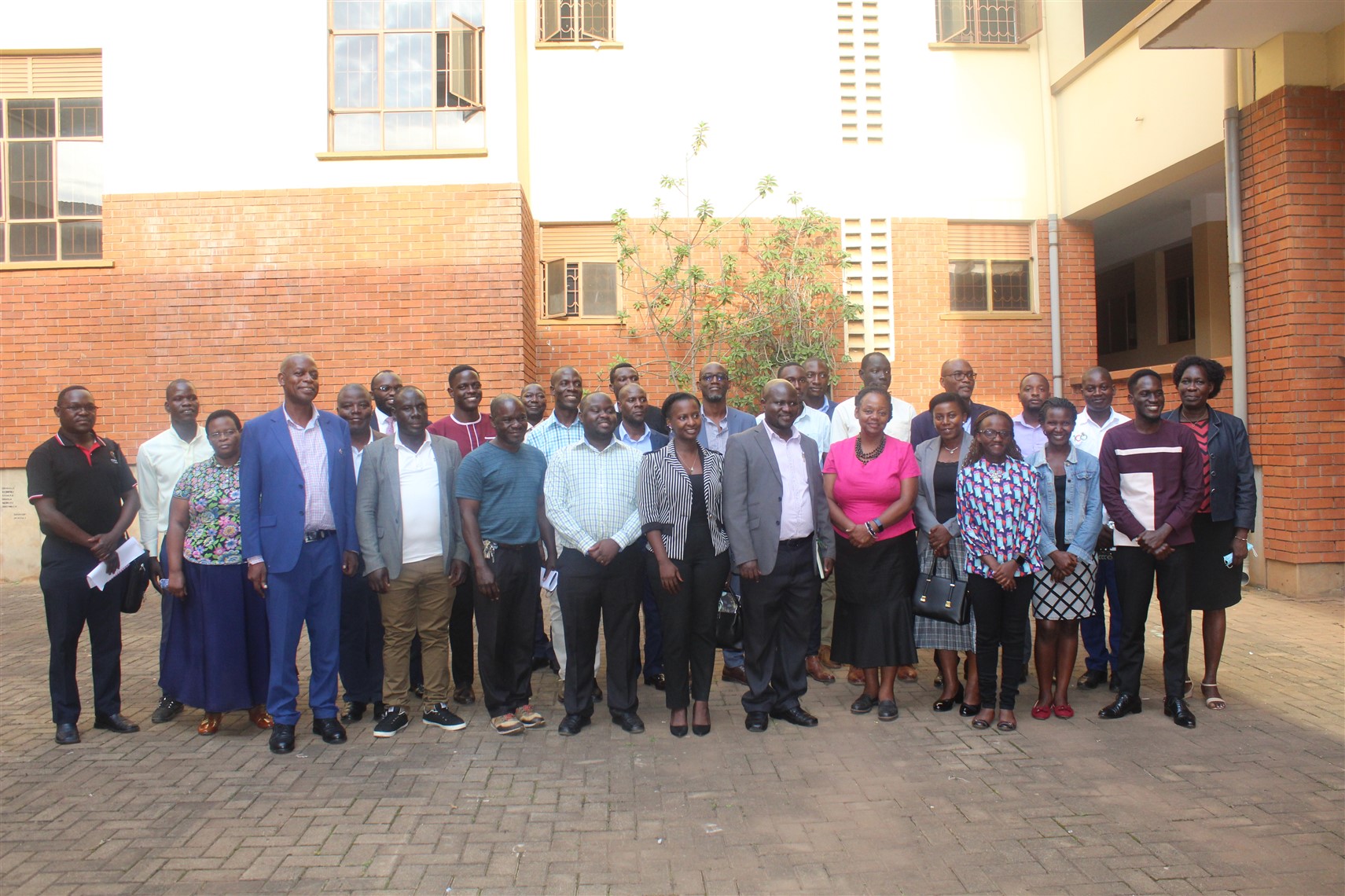
The School of Engineering at the College of Engineering, Design, Art, and Technology on Thursday 10th November 2022 held a stakeholder engagement to discuss accomplishments in the first of the three-year UNESCO China Funds –in -Trust project phase III.
The engagement aimed at sharing progress and to lay strategies for the coming period attracted the participation of key stakeholders in the relevant industries that included ministries and agencies, the employers, professional bodies and the academia.
The project, Higher Technical Education in Africa for a Technical and Innovative workforce (CFIT III), is an initiative by UNESCO with support from the People’s Republic of China. It is being implemented by the School of Engineering at the College of Engineering, Design, Art and technology, Makerere University.
The Dean, School of Engineering, Assoc. Prof. Dorothy Okello while welcoming the participants said the three-year project was aimed at strengthening the linkages between the academia and industry. She extended her appreciation to the stakeholders that turned up to make contribution to the program specifically citing the other branches of engineering, agricultural and biomedical. She said it was important for the unit to review the programs offered holistically in order lay strategies for improvement.
The Dean said the forum was an opportunity to share with the stakeholders the findings of the various studies undertaken which she described as an opportunity for them to look at the different aspects of the curriculum with the aim of producing better engineering graduates. She explained that the School of Engineering specifically undertook the study on research infrastructure because the university according its vision and strategic direction, was moving towards becoming research led. She called for continued engagements and contributions from the stakeholders whose questions and contributions were vital in enabling the School improve.
‘The School of Engineering is implementing the CFIT III project through which intervention, the unit is expected to produce better trained, skilled, knowledgeable and highly employable engineering graduates that fit into the needs of the industry’, she emphasized.
Findings of the three studies that were shared included, the Graduate Tracer Study that was presented by Dr. Vincent Sembatya, the labor Market Analysis, by Prof. Yawe, and a presentation about the research infrastructure at School of Engineering which was presented by Dr. Swaib Semiyaga, lecturer, Civil and Environmental Engineering Department.
The presentation about the state of infrastructure in the School of engineering identified a number of areas that needed to be addressed across all engineering programs namely civil, mechanical, electrical. The apparent gaps identified were staffing with less than 50% staffing levels. There is lack of space dedicated for graduate students, lack of specialists in many specialties, the limited academic staff, inadequate or even obsolete equipment as well as lack of maintenance policy for the equipment in the school. Among the recommendations was that the school designates reading space for graduate students, drawing timetables for master’s programs across the schools as well as ensuring that departments had strategic plans for guided approaches in recruitments in addition to involving graduate students in stop gap measures.
During the discussions, a number of issues arose including the identified challenge of employers that did not want to take on female engineers because of their peculiar needs like maternity and caring for children that affect their work output.
The other issue was the changing job world for engineers, and the necessity for graduates to have skills needed today was emphasized. It was indicated that there was need to adapt to the changing terrain to remain relevant.
Protection of the young engineers as they come to the field was another contentious issue that arose. It was noted that a number of employers were opting for workers from across the globe who can deliver citing the example of the Telecommunications field.
The other important element was empowering the graduates with soft skills that included problem solving abilities given that issues were bound to face them in the field, requiring them to be in the know of how to react.
The CFIT III project at Makerere University with a focus on the School of Engineering is to strengthen industry – academia partnerships in support of graduates with training that is better aligned to the labor market and industry needs thereby increasing the employability and engagement of CEDAT engineering graduates.
The stakeholders were drawn from agencies that included the Ministry of Education and Sports, National planning authority, Uganda Civil Aviation Authority, Uganda National Roads authority, The Estates and works directorate of Makerere University, Kampala Capital City Authority among others.

